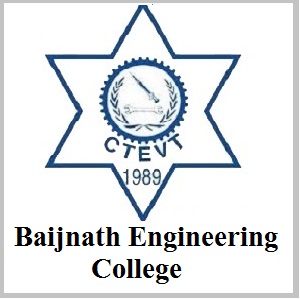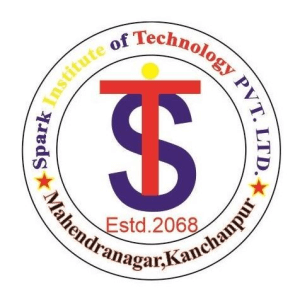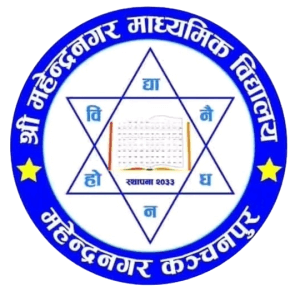Overview
Diploma in Automobile Engineering at Suklaphanta Polytechnic Institute
The Diploma in Automobile Engineering offered by Suklaphanta Polytechnic Institute (SPI) is a nationally recognized three-year program affiliated with the Council for Technical Education and Vocational Training (CTEVT). Located in Shuklaphanta Municipality–11, Jhalari, Kanchanpur District, the institute caters to students in Sudurpashchim Province seeking technical education in vehicle maintenance and mechanical systems.
This course admits 24 students annually, with three seats reserved for scholarship applicants. Candidates must have passed the Secondary Education Examination (SEE) and qualify through the CTEVT entrance examination. The curriculum and fee structure strictly adhere to CTEVT’s academic policies.
Curriculum Details
Structured over six semesters, the program combines theoretical instruction, workshop-based training, and practical assignments. Subjects covered include:
-
Automobile Engineering Drawing
-
Engine and Chassis System
-
Auto Electrical and Electronics
-
Vehicle Maintenance and Servicing
-
Applied Mechanics
-
Hydraulics and Pneumatics
-
Transmission Systems
-
Workshop Technology
-
Automotive Air Conditioning
-
Engineering Science
-
Project Work and Field Experience
Internal assessments and final evaluations are included each semester. Students also engage in real-time servicing tasks, diagnostics, and component testing to gain hands-on experience.
Objectives
The main purpose of the course is to produce technicians capable of performing maintenance, repair, and service of light and heavy vehicles. Key objectives include:
-
Building strong technical foundations in vehicle operation and system behavior
-
Developing troubleshooting skills for mechanical and electrical issues in vehicles
-
Promoting safety-conscious practices in automobile workshops
-
Providing the knowledge and skills required to meet market demand for skilled automobile technicians
-
Preparing students for real-world employment in service centers and vehicle assembly operations
Scope
Graduates from this program are qualified to work in:
-
Vehicle repair and maintenance workshops
-
Automobile dealerships and service centers
-
Transportation companies and logistics firms
-
Equipment and spare parts companies
-
Government and private transportation offices
-
Vocational training centers
This diploma also opens the door to further study in mechanical or automobile engineering at the bachelor's level, depending on the institution's admission criteria.
Learning Outcomes
After completing the program, students are expected to:
-
Perform regular servicing, maintenance, and overhauling of vehicles
-
Identify and repair mechanical and electrical faults in two-wheelers, three-wheelers, and four-wheelers
-
Operate diagnostic tools and use workshop equipment correctly
-
Maintain detailed records of service and repair
-
Follow national safety and emission standards
-
Provide basic vehicle inspection and technical advice
Skill Development Modules
Practical modules focus on workshop-based learning, such as:
-
Engine disassembly and reassembly
-
Brake and clutch system maintenance
-
Wheel alignment and suspension inspection
-
Fuel injection and ignition system testing
-
Electrical circuit fault identification
-
Use of lifting and safety tools
-
Lubrication and cooling system servicing
-
Basic welding and fabrication for vehicle parts
Teaching Methodology
The teaching approach includes lectures, demonstrations, hands-on repair assignments, team-based projects, and lab work. Instructors emphasize real-time servicing exercises, which allow students to interact directly with vehicle components. Industrial visits and local internships are also encouraged to connect classroom learning with field practice.
Admission Requirements
To apply, candidates must:
-
Have passed SEE (Secondary Education Examination)
-
Obtain at least grade ‘C’ in Compulsory Mathematics and Science, and ‘D+’ in English
-
Pass the CTEVT entrance examination
Selection is based on entrance exam scores and availability of seats.
Career Opportunities
Diploma holders can find employment in various roles, such as:
-
Auto service technician
-
Vehicle inspection assistant
-
Auto electrician or engine mechanic
-
Workshop assistant or service advisor
-
Spare parts assistant or technical sales support
Some graduates establish their vehicle repair centers, while others join dealerships and government mechanical departments. The skills acquired are in demand in Nepal and abroad, especially in the transportation and logistics sectors.
Scholarships and Financial Aid
Out of the 24 seats, 3 are reserved for scholarships, which are distributed according to CTEVT’s guidelines. Scholarships are granted based on merit and social inclusion criteria, giving opportunities to students from disadvantaged and underrepresented backgrounds.
Why Choose This Course?
This diploma is ideal for SEE graduates passionate about vehicles and want to build a technical career in automobile servicing. The course balances theoretical learning with practical sessions, helping students acquire reliable skills for workshop employment or small-scale entrepreneurship.
Conclusion
The Diploma in Automobile Engineering at Suklaphanta Polytechnic Institute offers structured, hands-on learning for students aiming to work in the automotive industry. With its CTEVT affiliation, experienced faculty, and workshop-oriented education, the program supports immediate employment and academic growth in the technical field.





















